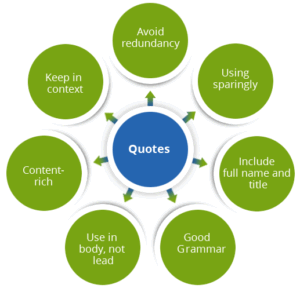 I follow the television industry. It’s a medium I devote about five minutes a day trying to follow largely by headlines and RSS feeds. Today I saw this headline and had to dig deeper: Big Media Sites Like Hulu “Anti-Consumer, Anti-Media Employees, Anti-America”?
I follow the television industry. It’s a medium I devote about five minutes a day trying to follow largely by headlines and RSS feeds. Today I saw this headline and had to dig deeper: Big Media Sites Like Hulu “Anti-Consumer, Anti-Media Employees, Anti-America”?
The headline borrows a quote by Laura Martin of Media Metrics, stating that websites like Hulu are “anti-consumer, anti-media employees, and even anti-America.” Wow. That’s pretty harsh rhetoric. At first, I thought the article had meant Media Metrix, the leader of online audience measurement and media planning. A little research proved I was wrong.
Laura Martin, it turns out, works for Media Metrics llc., which sells equity research reports across several industries, including entertainment, cable, and media. Things began to make sense. Someone from Media Metrix claiming Hulu is “Anti-America[n]” is a bit more damning than someone from a company that sells research and information. Borrowing from the newspaper industry, controversial headlines and taking controversial angles sells more copies. I suspect Media Metrics llc. might see an uptick in sales of some of its reports. And that’s just plain American. I like it.
I could go on a rant about how Hulu is an example of old media companies getting the Internet, but that’s been done (Read: Old Media Strikes Back). I could add my two cents why I think Laura Martin is just wrong … but then my readers would miss the big lessons.
What You Say Matters: Why Lackluster Quotes Will Sink Your Publicity Ship
Taking off my television industry hat and putting on my press release / publicity guru hat, I discover some amazing use of quotes.
The headline and article demonstrate the importance of quotes. Laura Martin gets publicity. I pulled up her resume: BA at Standford, MBA at Harvard Business School. I give her an honorary Ph.D. in generating quotes for the media. I give this quote an A. Hey, this particular website put her quote into its headline. It doesn’t get any better than this.
Here’s the lesson for quotes: if what you say can be paraphrased just as well and as succinctly as your quote, you will find yourself not being quoted. Journalists use quotes to say what they cannot paraphrase, which includes literary brilliance and controversial eloquence. Heck, when it comes to the controversy, the bar for eloquence is very low.
Pull up some of your own press releases and grade your quotes based on the chances that the media can’t or won’t paraphrase what you’ve written. I’ve taken a stab at grading a few quotes, hoping to spare any hard feelings by taking out company names:
“We are happy to have [Company X] as a partner. We find the company’s product offerings to be a natural complement to our existing services,” said …
Grade: F – This quote is generic, lacks specificity or anything strong to stand on its own.
“[Company] has always been dedicated to bringing the latest technological benefits to our customers, be it through our own products or in how we might better serve those who use them. Considering this, building our company around the concept of a virtual workplace made perfect sense,” said …
Grade: D – The first sentence is lame. The second sentence approaches something interesting and specific.
“The combination of the company’s strong materials based platform with the proprietary technology places it in a uniquely advantageous position to lead the industry in the area of tissue regeneration,” said …
Grade: D+ – Not bad but could easily be paraphrased.
“[Company] allows industry professionals to easily access supply sources, component reference information, and e-commerce capabilities 24/7 for millions of parts and components,” said … “Our goal with [Company] is to present a suite of tools and information to assist the user and offer these for a flat subscription price rather than adding costs to the transaction with fees and marked-up prices.”
Grade: D – Yawn. This is a very typical style of corporate quote that is safe and unlikely to result in being included in an article.
“This investment from [Company ABC] is a significant step toward expanding our channels of distribution, and it further drives execution of [Company Z’s] business plan,” said … “As one of the world’s premier innovators, [Company ABC] recognizes that secure, broadband data and telecommunications are altering the business landscape — enabling work locations and employees, suppliers and customers, to securely exchange data and applications, and more efficiently work together.”
Grade: D – See above.
“We recognize that licensing music is typically an inefficient, arduous process for companies, often subject to long and costly publishing and master rights negotiations,” said … “On the other hand, there is a universe of unknown, gifted musicians trying to break into the licensing industry who until now were largely an untapped resource. For both artist and end-user, the benefits of our service become obvious.”
Grade: B – The first sentence is the weakest. The final two sentences are good. In fact, I can see media quoting the sentence: “[T]here is a universe of unknown, gifted musicians trying to break into the licensing industry who until now were largely an untapped resource.”
“Teeth look much more feminine when they are rounded with more pronounced embrasures, the tiny inverted ‘v’ between the two front teeth,” said Dr. [Name]. “When the canine teeth are pointy, it softens the appearance to take the point off.”
Grade: B – The specificity of this quote ensures it will likely be picked up if a journalist is writing a story about cosmetic dentistry. It is succinct and explains a complex concept in a way that is easy to understand. However, I think the final sentence would read better as: “The removal of pointy canine teeth helps to softens a person’s appearance.”
This article is written by Mickie Kennedy, founder of eReleases (https://www.ereleases.com), the online leader in affordable press release distribution. To subscribe to PR Fuel, visit: https://www.ereleases.com/prfuel/subscribe/.
